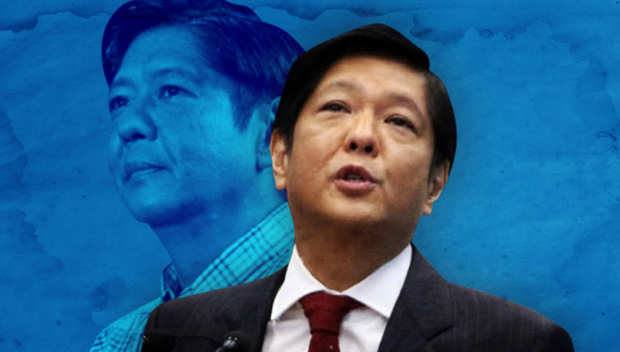MANILA, Philippines — United Kingdom-based think tank Pantheon Macroeconomics considers a win of leading presidential aspirant Ferdinand “Bongbong” Marcos Jr. in the May 2022 elections as a risk to the Philippines’ economic and investment recovery from its pandemic-induced slump.
“Elections in the Philippines are rarely fought on economic policy. But they still carry significant event risk, particularly if Ferdinand Marcos Jr., the current frontrunner and the son of an ex-dictator, wins. His father was toppled by the last major revolution, in 1986,” Pantheon Macroeconomics senior Asia economist Miguel Chanco said in a report.
In particular, Chanco said next year’s national polls would keep investors on wait-and-see.
It would not help that the prolonged COVID-19 pandemic would also temper consumer spending, Chanco added.
“Consumption is likely to remain tepid, at best, as households continue to rebuild the massive savings lost since the pandemic started, a process set back markedly by Delta,” he said, referring to the more contagious COVID-19 strain which reverted parts of the country to the most stringent lockdowns last August.
As such, unlike most other economic think tanks and financial institutions which forecasted the Philippines’ gross domestic product (GDP) to grow faster in 2022 than this year, Chanco said “the Philippines is the only economy [in emerging Asia] where we expect to see growth slow next year.”
Pantheon Macroeconomics projected GDP to grow 5.5 percent or at the top end of the government’s upgraded 5-5.5 percent target range in 2021.
However, for 2022, Pantheon Macroeconomics expects GDP growth at a lower 4.5 percent, way below the government’s ambitious 7-9 percent goal.
“History shows indisputably that government spending hits a brick wall when presidential elections take place, shaving 40-percent off quarterly trend growth, on average, in the same quarter of the last three elections,” Chanco explained.
Chanco was referring to the public spending ban on new projects during election campaign season, which either forced government agencies to spend faster ahead of the ban or else delay projects’ implementation, especially of big-ticket infrastructure.
For Chanco, “fiscal policy is likely to impose a persistent drag beyond the ballot, given that the country is the only one left in the region which has yet to engineer a nominal consolidation of its COVID-19-era budget blowout.”
The government plans to jumpstart fiscal consolidation or narrowing the pandemic-induced wider budget deficit and ballooning debt by next year, but it will be up to the next administration to put in place new or higher taxes to shore up revenues needed towards a smaller fiscal cap while repaying trillions of pesos in obligations.
The Department of Finance (DOF) was already working on a fiscal consolidation strategy, which will be unveiled to the public in January next year, and then to be turned over to the next administration for its consideration.
Finance Secretary Carlos Dominguez III had pledged to no longer impose additional taxes until the end of the Duterte administration in mid-2022, so as to not add more burden to the vulnerable population and badly hit sectors by COVID-19.
But DOF officials had said the next administration could set its sights on “relatively untaxed sectors.”
For instance, the viability of carbon tax, a levy on cryptocurrencies, removal of all exemptions from 12-percent value-added tax (VAT) payments, as well as further hikes of excise taxes on cigarettes, e-cigarettes, alcoholic drinks and sugary beverages were currently being studied and considered.
Dominguez had said that fiscal consolidation, if implemented by the next administration, would return to pre-pandemic budget deficit levels, equivalent to about 3 percent of GDP, by 2024.
The national government expects to end 2021 with a full-year fiscal deficit of P1.61 trillion, equivalent to 8.2 percent of GDP. The projected gap will be narrower than the original program of P1.89 trillion or 9.5 percent of GDP due to faster-than-expected recovery in tax and non-tax revenues while agencies continued to underspend.
As President Duterte’s chief economic manager, Dominguez had offered to help the incoming administration during its transition to power. Dominguez had wanted the current economic team to brief their successors about future prospects and challenges.
Specifically, Dominguez had pointed to high debt, elevated global inflation, wider global and local inequality, as well as climate change among the most pressing issues which the next president must address in 2022 and beyond.
